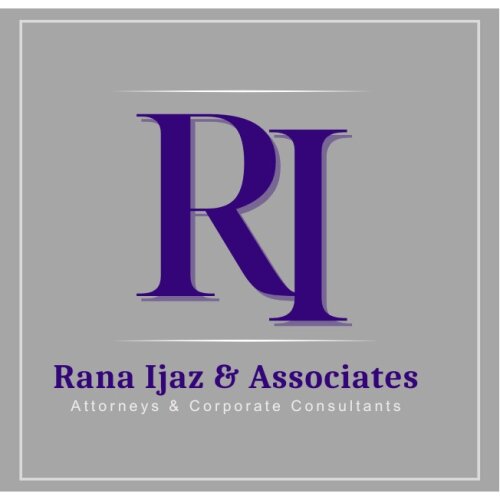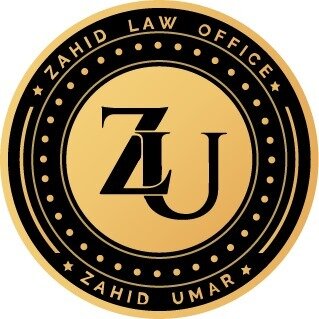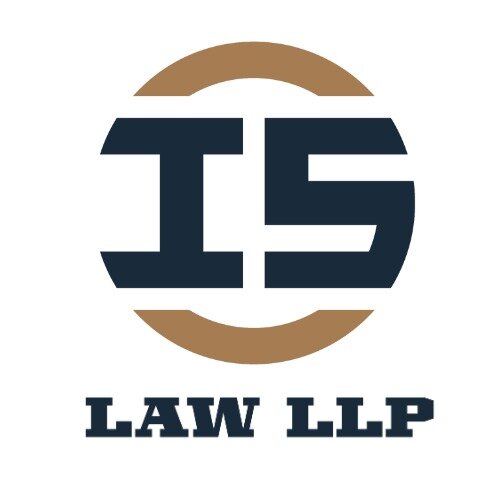Best Information Technology Lawyers in Lahore
Share your needs with us, get contacted by law firms.
Free. Takes 2 min.
List of the best lawyers in Lahore, Pakistan
About Information Technology Law in Lahore, Pakistan
Information Technology Law, often referred to as Cyberlaw, in Lahore specifically focuses on all legal and regulatory aspects related to the internet, digital technologies, and computer-based applications. These laws encompass software, hardware, e-commerce, telecommunication, data protection, intellectual property rights and protection against cyber crimes. Lahore, being the education hub of Pakistan and home to a considerable number of IT companies, has an increasing need for legal expertise in this field.
Why You May Need a Lawyer
With the rapid advancement and increasing use of technology, it is inevitable that legal issues related to IT will arise. Common situations in which you might require legal help include: drafting and reviewing IT contracts and agreements, resolving software patent disputes, navigating issues related to data protection and privacy, dealing with defamation online, handling copyright infringement, advising on e-commerce regulations and providing legal defence in tech-related criminal offences such as hacking or cyber bullying.
Local Laws Overview
IT law in Pakistan is primarily governed by two pieces of legislation: The Prevention of Electronic Crimes Act, 2016, and The Electronic Transactions Ordinance, 2002. The former provides a comprehensive mechanism for dealing with cyber crimes such as cyber terrorism, electronic fraud, data damage, unauthorized access and interference, while the latter recognizes and facilitates the formation of electronic contracts, and provides a regulatory framework for digital signatures. Other important legislation includes the Pakistan Telecommunication (Re-organization) Act, 1996, and Copyright Ordinance, 1962, which have sections covering IT related issues and crimes.
Frequently Asked Questions
What are the common cyber crimes in Lahore?
Cyber crimes prevalent in Lahore include identity theft, hacking, data breaches, defamation and online harassment.
Are there laws protecting against intellectual property violations in IT?
Yes, the Copyright Ordinance, 1962 provides protection for literary, artistic, musical, and dramatic works, which include software and databases.
What should I do when my personal data is leaked?
If personal data is leaked, you may use provisions of the Prevention of Electronic Crimes Act to seek legal recourse.
What are the legal implications of running an e-commerce business in Lahore?
An e-commerce business must adhere to regulations established within the Electronic Transactions Ordinance, as well as follow rules related to data protection and consumer rights.
What is the technical evidence in IT-related legal cases?
Technical evidence refers to any digital or electronic evidence that is used in court, such as emails, database records, images, or even data recovered from hard drives or other storage devices.
Can copyrighted software be legally copied in Pakistan?
No, copying copyrighted software without consent is considered an offense under the Copyright Ordinance.
Are the digital contracts legally binding in Pakistan?
Yes, digital contracts are recognized and enforced under the Electronic Transactions Ordinance.
Can a person be sued for posting defamatory content online?
Yes, a person can be sued for posting defamatory content online under the Prevention of Electronic Crimes Act.
What laws govern the telecom sector in Pakistan?
The Pakistan Telecommunication (Re-organization) Act, 1996 is the primary legislation governing telecom activities in Pakistan.
Can a person anonymously report a cyber crime?
Yes, a person can anonymously report a cyber crime to the Federal Investigation Agency (FIA).
Additional Resources
The Pakistan Telecommunication Authority (PTA) is a useful point of contact for any matters related to telecommunications. The Ministry of Information Technology and Telecommunication is also an impactful resource which provides comprehensive information about IT and telecom laws in Pakistan. For reporting and handling of cyber crimes, the Federal Investigation Agency's (FIA) National Response Centre for Cyber Crimes provides all necessary and essential support.
Next Steps
If you need legal assistance related to Information Technology, it would be beneficial to consult with a lawyer specializing in IT law. It's important to review any documentation carefully and understand your rights and obligations under the relevant laws before proceeding with any legal action.
Lawzana helps you find the best lawyers and law firms in Lahore through a curated and pre-screened list of qualified legal professionals. Our platform offers rankings and detailed profiles of attorneys and law firms, allowing you to compare based on practice areas, including Information Technology, experience, and client feedback.
Each profile includes a description of the firm's areas of practice, client reviews, team members and partners, year of establishment, spoken languages, office locations, contact information, social media presence, and any published articles or resources. Most firms on our platform speak English and are experienced in both local and international legal matters.
Get a quote from top-rated law firms in Lahore, Pakistan — quickly, securely, and without unnecessary hassle.
Disclaimer:
The information provided on this page is for general informational purposes only and does not constitute legal advice. While we strive to ensure the accuracy and relevance of the content, legal information may change over time, and interpretations of the law can vary. You should always consult with a qualified legal professional for advice specific to your situation.
We disclaim all liability for actions taken or not taken based on the content of this page. If you believe any information is incorrect or outdated, please contact us, and we will review and update it where appropriate.













